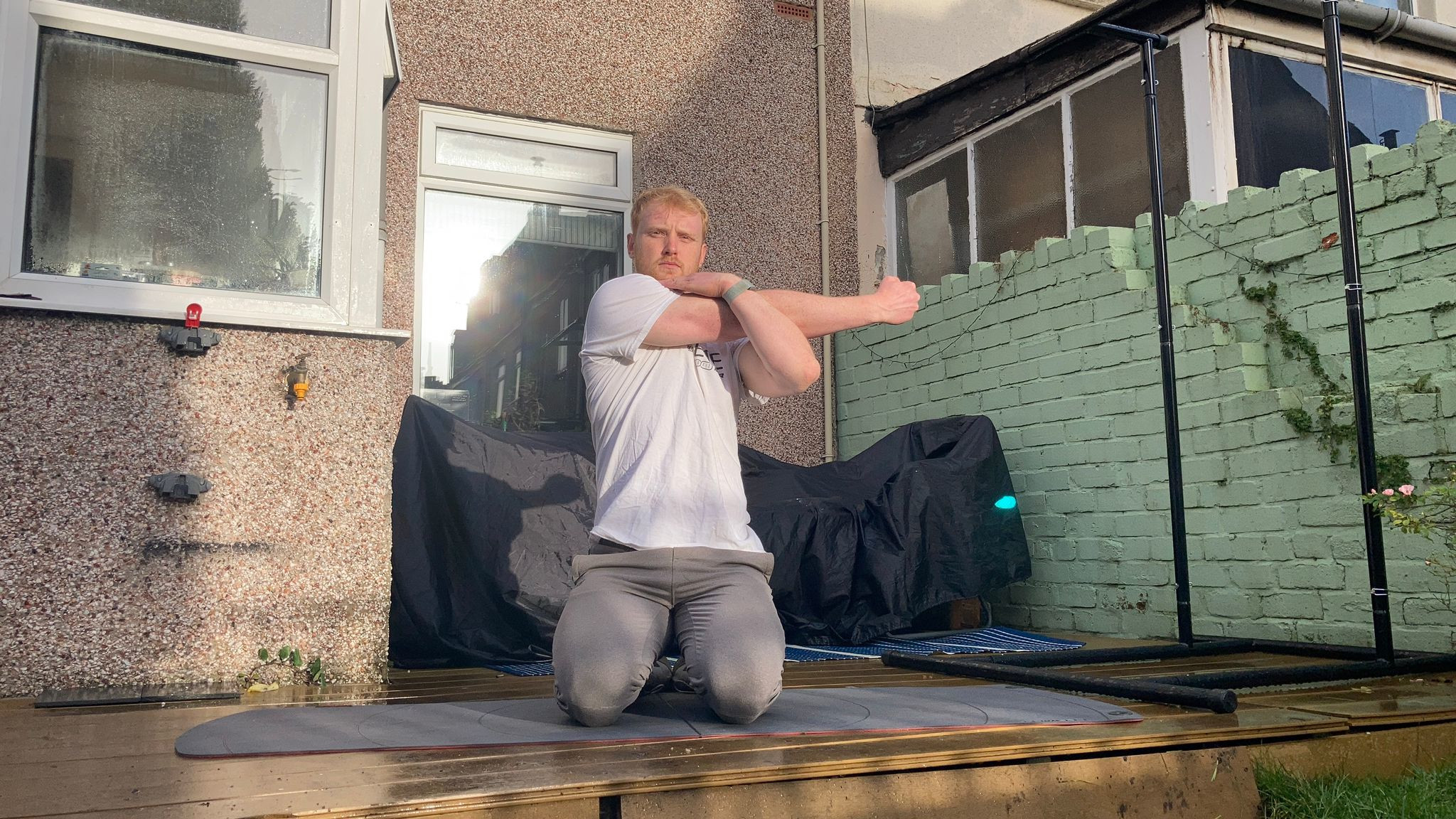
I’m rarely happier than when I’m working out, so I do it rather a lot. What I don’t (and really should) do so religiously is prioritize my recovery.
This got me wondering: How do top athletes manage to train twice a day (or more) without burning out?
Someone who trains harder than most is elite CrossFit athlete Noah Ohlsen. Alongside taking care of the fundamentals of recovery—a healthy diet and plenty of high-quality sleep—he boosts his recuperation efforts by following mobility routines from stretching app Pliability.
This, he says, is a “non-negotiable element of my daily routine” which helps him stave off injuries and improve his recovery.
The routine below is Ohlsen’s favorite for days when his shoulders and neck feel tight after training. That’s a feeling I’m familiar with, with CrossFit training combined with hours spent at my laptop resulting in an almost constantly stiff neck, so I decided to give it a go. Here are my thoughts, as well as instructions on how you can try it yourself.
How To Do Noah Ohlsen’s Mobility Routine
I used Pliability’s follow-along video to complete this routine (it’s in Pliability’s Shoulder And Neck Stress Relief pathway, if you need help finding it in the app). You can also use the instructions below to complete the session under your own steam.
1 Self-cervical fascial mobilizations
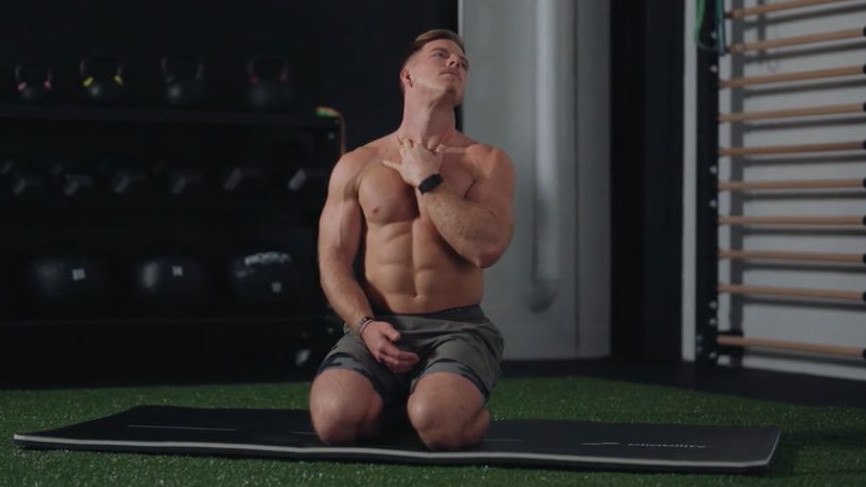
Time 90sec each side
How to do it Kneel on your yoga mat, sitting on your heels. Place the fingers of your right hand on the left side of your neck, just above your collarbone. Gently press down with your fingers and look up and to the right. Hold this for a few seconds, then release the tension by bringing your head back to the starting position. Continue until the 90 seconds is up, then repeat on the other side.
How I found it This one took me a little while to get used to, and at first the biggest stretch I felt was in my quads (the effect of the kneeling position after a series of heavy barbell squats earlier in the week).
I eventually found the movement that caused a stretch down the back and side of my neck, and made sure to look at the same point on the ceiling as I repeated the stretch.
2 Cross arm adduction
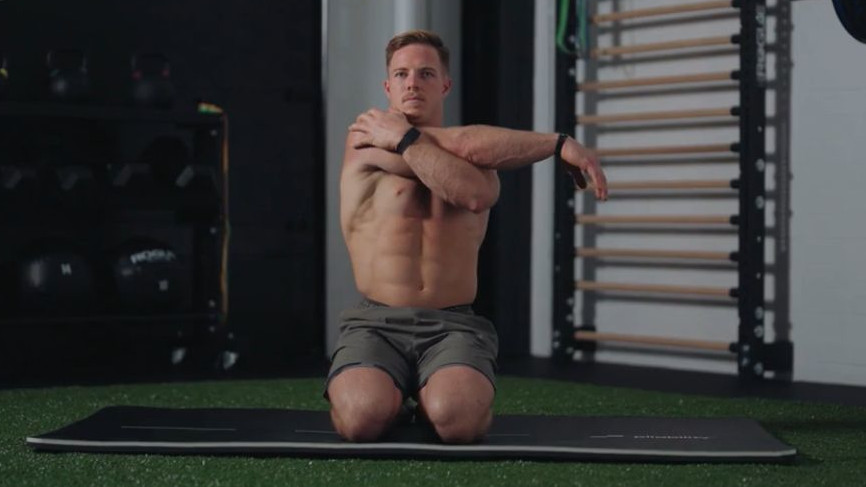
Time 90sec each side
How to do it Reach your right arm across your body, keeping it as relaxed as possible. Use your left forearm to hug it towards your chest. Inhale and exhale slowly. As you inhale, release tension on the arm, then when you exhale pull it closer towards your body. Continue until the 90 seconds is up, then repeat on the other side.
How I found it This was my favorite stretch of the lot. It brought back fond memories of my PE teachers’s warm-up routines, but 20 years and however many weight training sessions later I found it felt very different. There was a deep and enjoyable stretch in my lats and the back of my shoulder, and as the seconds ticked by I was able to pull the arm across my body further into my chest.
I felt fantastic afterwards too. I’ve recently been dealing with light twinging and tightness in the front of my shoulders. It tends to flare up when my arm is extended upwards, but after this shoulder stretch I enjoyed far more freedom of movement around the joint without discomfort.
3 Chin tuck
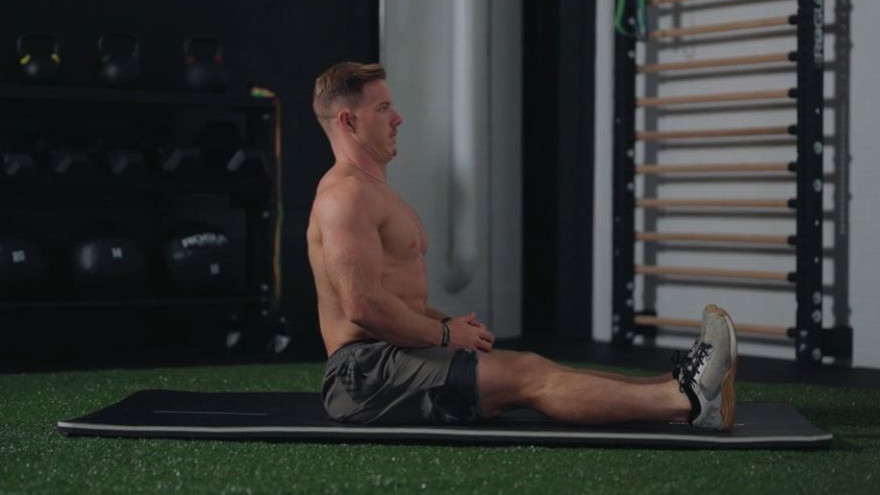
Time 90sec
How to do it Sit on the floor with your legs extended. Move your chin in towards your neck so your ears sit over your shoulders. Hold this position for one deep breath then release.
How I found it Prepare yourself, this one looks and feels a bit odd. It’s not the most flattering of movements, essentially asking you to create as many double chins as possible. I found it also produced a strange cramp-like sensation underneath my jaw, but
I’m glad I did it. After spending hours at my laptop or on my phone each day, my head tends to drop forward at every opportunity. The chin tuck can help develop neck strength to help you keep your head aligned with your spine.
4 Glute bridge lat press-down
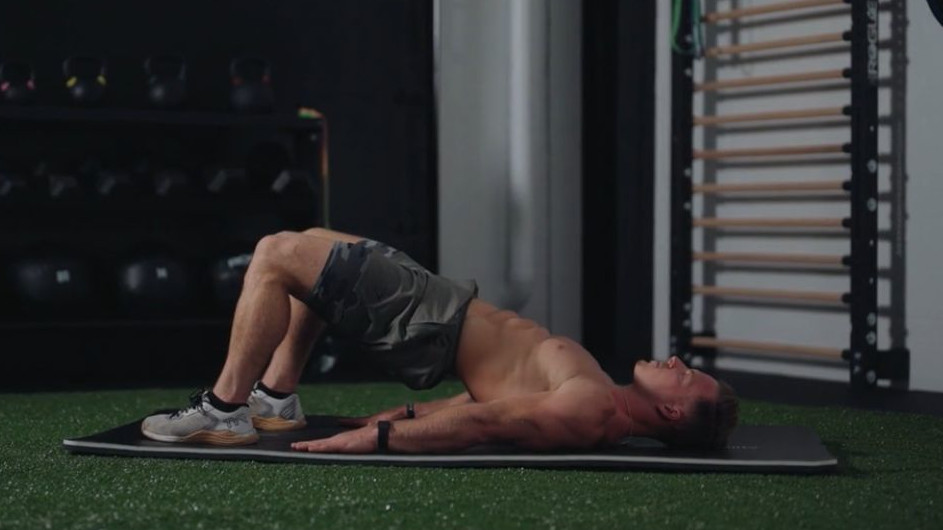
Time 90sec
How to do it Lie on your back with your knees bent and your feet flat on the floor and hip-width apart. Position your arms by your sides with your palms facing down. Flatten your lower back into the floor using your abdominals. Press through your heels to lift your hips until your torso and thighs form a straight line, and press your arms into the floor to engage your lats. Hold this position for one second, then lower your hips to the floor under control.
How I found it I really liked this one. Working out at home during lockdown showed me how hard it is to work your back muscles without equipment, but this move cleverly engages the lats. I was surprised to find just how effective it was too, with these large back muscles feeling like they had been put to work after just 90 seconds of the exercise.
The Result
This routine promises a lot off the back of just four moves and 10 minutes. The Pliability team said benefits include “enhanced shoulder and neck mobility, improved upper-body workout performance, reduced risk of injuries, increased overall training effectiveness and enhanced athletic longevity”.
Given that I only did the session yesterday, I can’t speak to athletic longevity, but I did notice some of the effects in my next workout.
My shoulders felt like they were able to move more freely, particularly in the overhead position which had been causing me some discomfort. As a result, I was able to do kipping gymnastics drills while hanging from a bar without feeling restricted.
I felt slightly less tension in my neck too, although it was still pretty stiff, but hey, it’s probably unfair to expect a 10-minute routine to fix nearly a decade of days bent over a laptop, right?
Pliability has shared more routines with Coach. There’s this mobility routine put together by Cody Mooney, Pliability’s director of performance. Mooney also contributed these mobility exercises for hips, and finally there’s CrossFit star Emma Lawson’s mobility routine.







